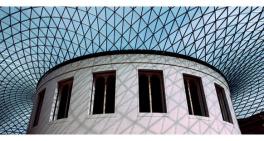High court sides with Samsung in patent dispute with Apple
Intellectual Property
The Supreme Court unanimously sided with smartphone maker Samsung on Tuesday in its high-profile patent dispute with Apple over design of the iPhone.
The justices said Samsung may not be required to pay all the profits it earned from 11 phone models because the features it copied from the iPhone were only a part of Samsung's devices.
Cupertino, California-based Apple had won a $399 million judgment against South Korea-based Samsung for infringing parts of the iPhone's patented design, but the case now returns to a lower court to decide what Samsung must pay.
The case is part of a series of disputes between the technology rivals that began in 2011. Apple accused Samsung of duplicating a handful of distinctive iPhone features for which Apple holds patents: the flat screen, the rounded rectangular shape of the phone and the layout of icons on the screen.
At issue was how much Samsung is required to compensate Apple under an 1887 law that requires patent infringers to pay "total profit." Apple said that means all the profits from the phone sales, while Samsung argued it was limited to profits related to the specific components that were copied.
Justice Sonia Sotomayor wrote for the court that the law does not require damages to be based on the entire product, but can be limited to only a component of the product. The decision overturned a ruling from a federal appeals court in Washington, which said that Apple was entitled to all the profits.
But the high court declined to lay out a specific test for how such damage awards should be calculated. Sotomayor said doing so was not necessary and the justices left it up to lower courts to resolve.
Related listings
-
A Supreme Court pharma case deals consumers a big loss
Intellectual Property 08/23/2017In the war being waged by large corporations against individual rights — and, yes, it is a war — a potentially decisive battle was recently fought. It will come as little surprise to any informed observer of American society that it was n...
-
U.S. high court ruling deals blow to patent trolls
Intellectual Property 07/10/2017The Supreme Court is making it easier for companies to defend themselves against patent infringement lawsuits.The justices ruled unanimously on Monday that such lawsuits can be filed only in states where defendants are incorporated. The issue is impo...
-
High court ruling limits international reach of patent laws
Intellectual Property 02/22/2017The Supreme Court on Wednesday sided with California-based Life Technologies Corp. in a patent infringement case that limits the international reach of U.S. patent laws. The justices ruled unanimously that the company's shipment of a single part of a...

Can my trucking injury case be filed in Illinois?
If you have been injured in a truck driving accident, you may be wondering whether your worker’s comp case can be filed in Illinois. For an injured truck driver, this is an important question to ask, as the jurisdiction of the case can end up having a big impact on your benefits.
There are three main scenarios in which the Illinois Worker’s Compensation Commission would have jurisdiction over a trucking injury:
-If the accident took place in Illinois, If the employer is principally located in Illinois, or If the contract for hire is in Illinois
This means that a truck driver whose home terminal is in Illinois can make a claim for workers comp benefits in Illinois even if they were injured while on the road in another State. It also means that truck drivers who get hurt while passing through Illinois can file a claim in Illinois, even if their employer is located in another state.
If you have been injured on the road, and you are unsure where and how to file your workers comp claim, call us at (312)-726-5567 to begin your consultation. We can advise you whether Illinois is the right state to file for you. We have handled well over 30,000 claims for injured workers throughout the state of Illinois.




